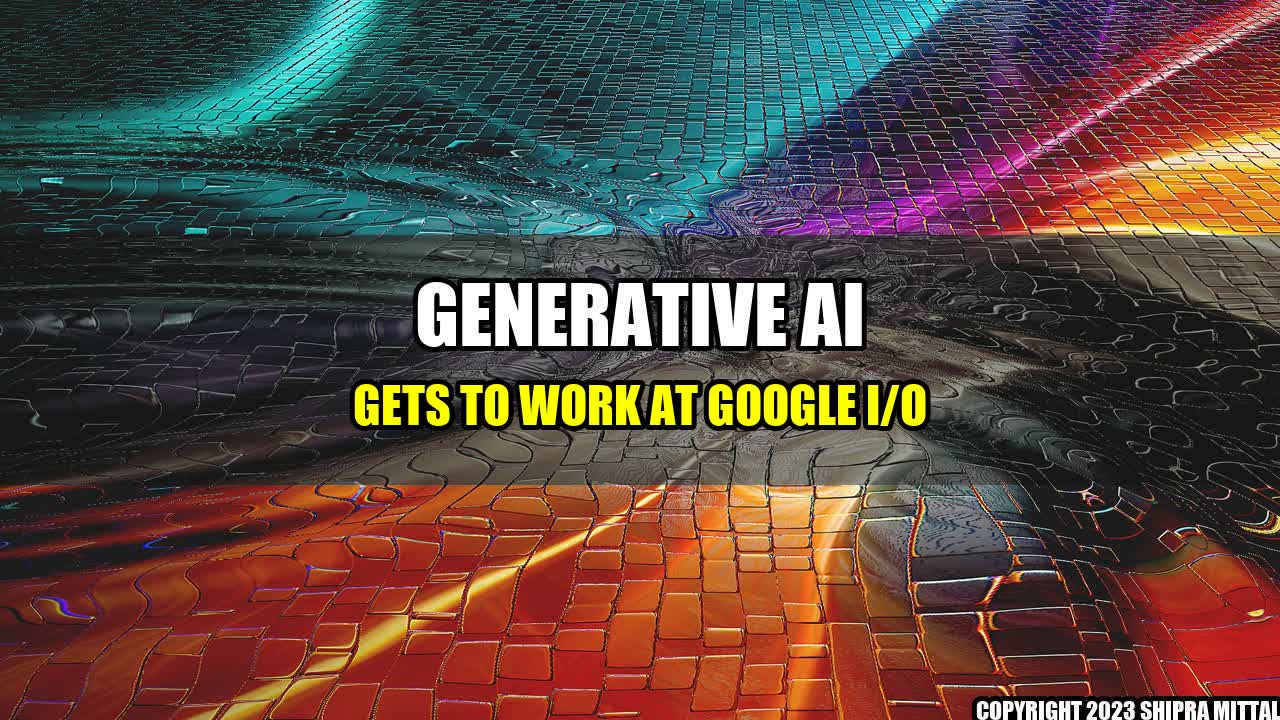
It was a hot day in early May when I found myself standing in the midst of a bustling crowd at the Shoreline Amphitheatre in Mountain View, California. I was attending the Google I/O conference, an annual event designed to showcase the latest innovations and technologies by the search giant. As I made my way through the throngs of people, my excitement grew with each passing moment.
At last, I found myself in front of the entrance to the main hall, where a large banner proclaimed the theme of this year's event: "Intelligence Everywhere". It was a fitting title, given the emphasis that Google had been placing on artificial intelligence and machine learning in recent years.
One of the keynote presentations that I attended that day was entitled "Generative AI: The Future is Here". The speaker, an accomplished AI researcher, explained how machine learning algorithms could be trained to generate new content that was indistinguishable from human-created materials.
As he demonstrated various examples of generative AI in action, one thing became abundantly clear to me: this technology was going to change the world in ways that we couldn't even imagine.
For instance, the researcher showed how Google was using generative AI to create more realistic and immersive gaming environments. By feeding the algorithm images and videos of real-world locations, the software could generate fully 3D environments that looked and felt just like the real thing.
Another example he gave was in the field of music composition. By analyzing thousands of songs from a particular genre, generative AI algorithms could learn to create entirely new pieces of music that were virtually indistinguishable from those composed by human musicians.
While the concept of generative AI may seem like science fiction to some, Google has already made significant progress in this field. For instance, the company's DeepMind subsidiary used a generative adversarial network (GAN) to produce high-resolution images that were mistaken for real photographs 40% of the time.
In another experiment, Google used a generative AI algorithm to develop a new class of machine learning models that could generate highly accurate predictions about future events. When tested against traditional forecasting techniques, the generative approach outperformed the others by a significant margin.
Finally, Google's AI researchers used generative models to create virtual assistants that could speak multiple languages fluently. By simulating thousands of hours of conversations in different languages, the algorithm was able to learn the nuances of syntax and grammar, producing near-perfect speech recognition in real-time.
It's clear that generative AI is going to have a profound impact on the way we live and work in the future. Here are just a few of the ways in which this technology is going to change the world:
Generative AI is already making its presence felt in a wide range of industries, from gaming and music to finance and healthcare. As algorithms become more sophisticated and the amount of data they can analyze grows larger, we can expect to see an explosion of creativity and innovation in fields that were previously thought to be the exclusive domain of human beings.
Whether you're a fan of science fiction or just someone who likes to stay on top of the latest technological developments, it's clear that generative AI is going to be a major player in the years to come.
References:
Hashtags: #generativeAI #AIrevolution #machinelearning #GoogleIO #creativeinnovation
Article Category: Technology
Akash Mittal Tech Article
Share on Twitter Share on LinkedIn